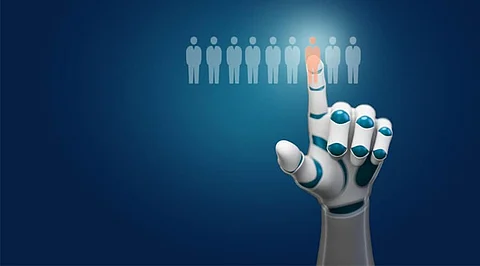Automation in Recruitment: Higher Productivity and Better Hiring

Recruitment automation will grow in the coming years, improving work processes and optimized processes.
The developing requirement for recruitment automation tools has powered the new popularity in AI for hiring. With hiring volume anticipated to increment one year from now yet recruiting teams continuing as the same size or contracting, interest in recruitment automation will just get more powerful.
In case you're an in-house recruiter, you'll be quite aware of the rollercoaster banter about how automation and AI will change your reality. Innovation is changing the manner in which we work. Yet, instead of a future workplace loaded with robots doing the jobs of hiring specialists, extraordinary recruiters will give tech something to do; utilizing automation, AI and predictive analytics to settle on better recruiting decisions.
In the last decade, how recruiters find qualified candidates has changed drastically. Quest for new employment sites has automated a large part of the posting process managers use to discover candidates. Luckily, a similar technology automated the enrolling cycle, saving your time for other business tasks.
There are numerous advantages of automation, for example, higher productivity and better quality service. In a report by McKinsey Global Institute, researchers foresee somewhere in the range of 400 and 800 million jobs will be lost to automation by 2030. However, jobs will be changed, which will move the tasks most employers lead in a day, including recruitment business owners.
Automation puts you ahead of the curve and allows you to discard tedious assignments a machine can do. This lets you lose you to chip away at marketing, pulling in the best candidates and creating individual relationships with your customers. Automating even a couple of parts of any business improves the work process and optimized processes.
Recruitment automation for interviewing increases employers' abilities by permitting recruiters to conduct interviews anyplace any time. Digitized interview technology records candidate interviews and assesses factors like their statement decisions, speech patterns and facial expressions to foresee how well an applicant fits the job. Further, Recruitment automation for interviews ensures to improve the quality of hire by giving extra data points on how well the candidate fits the work prerequisites or organization culture.
Artificial intelligence utilizes methods, for example, natural language processing and sentiment analysis to learn, investigate, and solve problems. Talent mapping, with the assistance of Big Data is certainly the next stage in hiring innovation. With talent mapping, hiring specialists can decide their candidate needs well ahead of time and build up an essential arrangement for hiring long-term. This incorporates filling any skill gaps, supporting the group for unexpected changes in the workplace, or just having appropriate talent as a primary concern for what's to come.
In any case, for all the great it can do, recruitment automation has frequently been a target for criticism. What's more, that wasn't just the situation in its initial days – even with all the headways that came from artificial intelligence, big data, machine learning – applicant tracking systems and recruitment automation specifically, are ordinarily enduring an onslaught from the critic pundits.
Nonetheless, human characteristics, for example, compassion and contextual understanding are still (nearly) difficult to supplant with automation. For example, an AI-driven recruitment tool may distinguish an applicant as having all the essential experience based on a keyword search. However, will it miss the fact that the same candidate has changed jobs multiple times in a single year?
Candidates can have atypical work experience and still be an extraordinary fit for a position. Notwithstanding, it would take a human recruiter to make that decision, and it's impossible that such a resume would go through an ATSs gauntlet and show up before a recruiter. This can incredibly diminish the diversity of hires.
The takeaway is that settling on the best candidate for a task takes human instinct. You can't run a heap of resumes through a machine or computer program and have it to disclose to you who to recruit. Regardless of all the noise about AI, recruiters most likely have nothing to fear. Embrace the advantages innovation gives and try to lead the best interviews you can.
.png)

